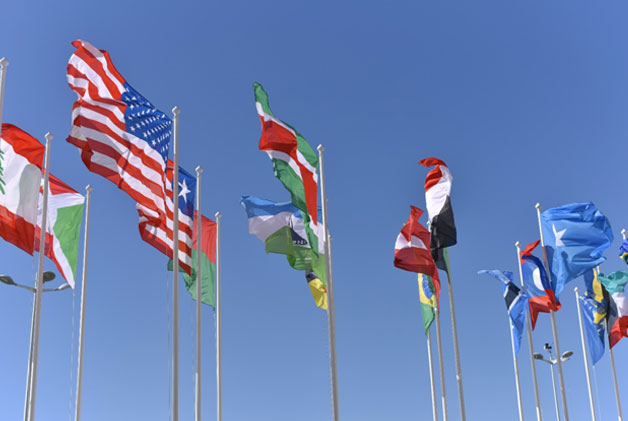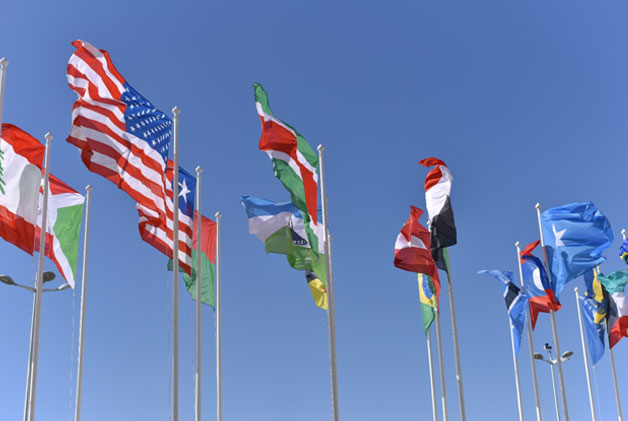

An international crisis such as the one posed by the outbreak of novel coronavirus (COVID-19) is bound to have an impact on global practices and actions. The communicable disease has spread its tentacles across 199 countries affecting about 7,23,287 of the global populaces (as on 30th March 2020). While the global economy grapples under duress, diplomacy is another aspect that will endure the strains of COVID-19.
International summits of the United Nations, World Trade Organisation and Human Rights organisations have been suspended indefinitely, at a time when cooperation could be more engaging. Diplomats have been stranded and international flights have been cancelled worldwide, putting a full stop on cultural, economic and touristic exchanges. U.N. Secretary-General António Guterres issued a declaration for a wide-spread ceasefire among war-torn and insurgent afflicted regions, which has gone largely unheeded. The UNSC is also reeling in inertia from the US pressing the 15-nation council to adopt a resolution solely accusing China of the viral outbreak. A move likely to be vetoed by China. The World Health Organisation has also come under criticism for its inadvertent delay in declaring a public health emergency as well asnot allowing Taiwan to address the WHO, even though Taiwan has shown exemplary response in controlling the pandemic.
The blame game between the US and China, wherein the former nation labels the coronavirus as a “Chinese/Wuhan virus” has occupied the centre-stage of Washington-Beijing strained relations. The US government is using this opportunity to decouple from China by way of scaling back reliance on Chinese goods and services. While the Donald Trump-led US administration seems pretty much enthralled in placing accusations on China and protecting its domestic population, China has gone ahead and mitigated the blow to its reputation. The state-run media in China and its diplomats have been vociferous in their refrain on the efficacy of the Chinese response to the crisis as well as in urging the international community to avoid evacuating their citizens or curtailing travel. China has airlifted 30 tons of medical supplies to Italy, to fill in the vacuum left by EU’s absence in abating the crisis in Italy. China has also pledged $20 million to help the World Health Organization to help improve public health systems in poor countries, whereas the USA has cut its contribution to the organisation significantly. Cambodia, Pakistan, North Korea and even Russia have expressed solidarity with the Chinese government. The continuing US sanctions on Iran and North Korea even in the face of a public health emergency point towards the lack of empathy to the plight of some of the vulnerable countries of the world. However, China is the only country that has come to Iran’s aid. It has also extended support to countries like Iraq, South Korea and Cyprus.
As a display of medical diplomacy, Cuba has sent a large team of health care professionals to assist the ongoing battle against the novel coronavirus in Italy. Indian prime minister Narendra Modi has pledged $10 Million to SAARC as humanitarian aid in the pandemic in a well-meaning push towards regional cooperation.
Amidst closed borders, stalled flights, mass hysteria and a fatal pandemic sweeping across nations, international cooperation is sine qua non for combating COVID-19. Academics Robert Keohane and Joseph Nye had put forth the idea of ‘Complex Interdependence’ in international relations, wherein transnational actors become dependent, vulnerable and sensitive to each other’s needs. The coronavirus pandemic has largely reiterated the need for cooperation among nations as a dominant narrative.
